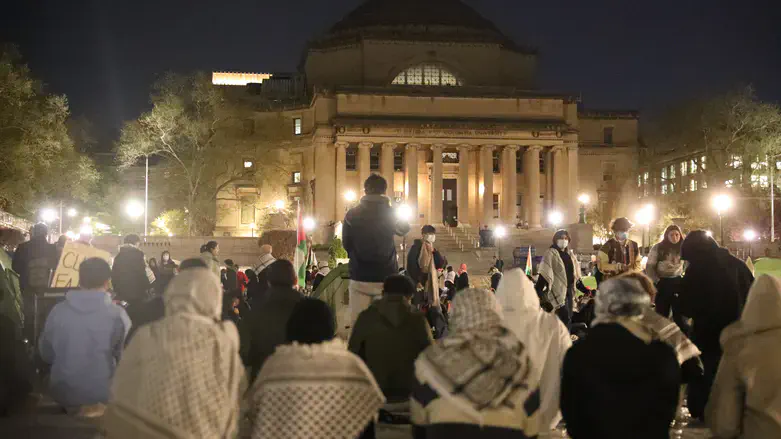
Claire Shipman, the newly appointed president of Columbia University, dismissed Congressional hearings on the wave of campus antisemitism that followed the October 7 massacre as "Capitol Hill nonsense" and sought to reinstate student organizations that had been suspended for their antisemitism, the New York Post reported.
Shipman made the comments in a text exchange with then-university president Minouche Shafik following the Congressional hearings in December 2023 in which the presidents of Harvard University, MIT, and PENN were questioned about their responses to the antisemitism on their campuses that followed the Hamas massacre. She shared a New York Times article that claimed that Stefanik had "navigated" the controversies surround the massacre and the resulting wae between Israel and the Hamas terrorist organization more "deftly" than other universities had.
According to Shipman, this article "heavily inoculates us for a while from the capital hill nonsense and threat."
In the same text message, Shipman called for the school to "unsuspend" the antisemitic student groups that had been suspended and for the school to work more closely with the radical academic Rashid Khalidi, who has called terrorists "resistance fighters" and called for the October 7 massacre to be seen in the "context" of alleged Zionist crimes dating back to 1917.
Another text message between two university officials who believed Columbia's disciplinary policies against antisemites were not working revealed that one of the officials stated that an attempt to ensure that the disciplinary policies were properly enforced would face "pushback" from Shipman and Stefanik.
The text messages were revealed in the October report on college campus antisemitism released by the House Committee on Education and the Workforce.
Shipman served as the co-chair of Columbia's board of trustees before her appointment as acting university president following interim president Katrina Armstrong's resignation on Friday.
Armstrong took on the role of interim president of Columbia University last August, after the previous president, Minouche Shafik, resigned following allegations of her mishandling of anti-Semitism on campus.
The resignation of the interim president comes just days after Armstrong announced that she decided to adopt the Trump administration's demands regarding the fight against anti-Semitism at Columbia University. The American government revoked grants totaling $400 million from the university after Columbia's administration failed to protect Jewish students who suffered from violence, intimidation, and discrimination since the outbreak of the war in Gaza.
Armstrong herself said last week that "we have worked hard to address the legitimate concerns raised both from within and outside our Columbia community, including by our regulators, regarding discrimination, harassment, and the antisemitic acts that our Jewish community has faced following October 7, 2023."
Upon her appointment, Shipman issued a statement committing to continue the changes that Armstrong pledged to promote the safety of Jewish students.
"I assume this role with a clear understanding of the serious challenges before us and a steadfast commitment to act with urgency, integrity, and work with our faculty to advance our mission, implement needed reforms, protect our students, and uphold academic freedom and open inquiry,” Shipman said
